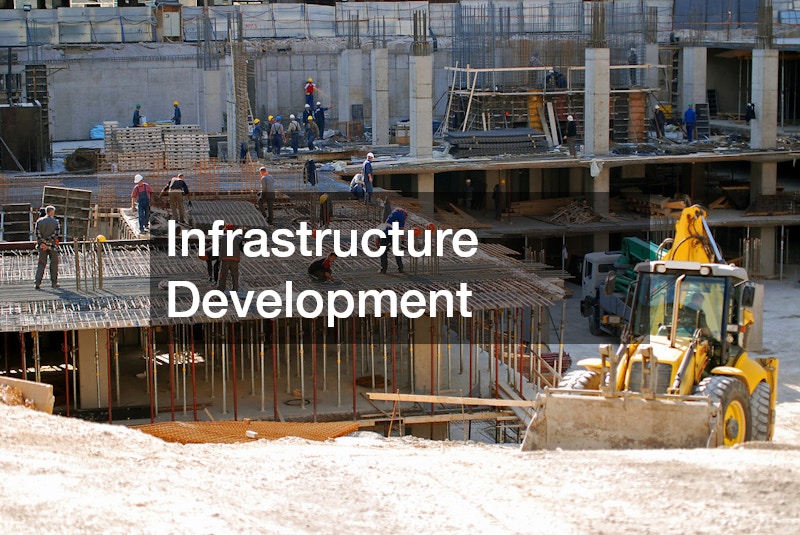Urbanization is a significant phenomenon shaping the modern world. As more people migrate to urban areas in search of better opportunities, cities are expanding, leading to a surge in construction activities. This growth has profound implications for various construction industries, including those involved in residential, commercial, and infrastructural projects. In this article, we will explore the myriad advantages urbanization offers to construction industries, with particular attention to specific sectors such as fire sprinkler contractors, commercial pool contractors, landscaping services, roofing contractors, deck builders, and more.
Increased Demand for Housing
One of the most immediate benefits of urbanization is the rising demand for housing. As populations swell in urban areas, the need for residential construction becomes critical. This surge in demand provides numerous opportunities for various contractors. For instance, fire sprinkler contractors see an increase in business as new homes require compliant fire protection systems. Similarly, roofing contractors are called upon to ensure that these new structures are not only aesthetically pleasing but also durable and energy-efficient.
Manufactured homes also play a significant role in urban housing solutions. They offer a quicker and often more affordable way to meet housing needs in burgeoning urban areas. As cities expand, the demand for manufactured homes rises, giving contractors in this niche a valuable market to tap into. Moreover, the rapid pace of urban development often necessitates excavation services to prepare sites for new residential complexes, further benefiting construction industries involved in land preparation.
Commercial Development Opportunities
Urbanization does not solely impact residential construction; it also stimulates commercial development. With more people living in cities, there is an increased need for retail spaces, office buildings, and entertainment venues. This boom creates lucrative opportunities for commercial pool contractors, who are frequently engaged to install pools in hotels, gyms, and recreational facilities. Their expertise is crucial in ensuring these amenities are not only attractive but also functional and safe.
Furthermore, the growth of commercial establishments increases the demand for landscaping services. A well-designed landscape enhances the aesthetic appeal of commercial properties, making them more inviting to customers. Landscaping services can include everything from planting trees and flowers to installing hardscapes, and as urban areas grow, these services become essential. In this environment, deck builders also find ample opportunities, creating outdoor spaces that enhance the functionality and beauty of commercial properties.

Infrastructure Development
Urbanization requires robust infrastructure to support the increasing population and economic activities. This infrastructure includes roads, bridges, and public transport systems. The construction of these facilities benefits a wide range of contractors, including asphalt driveway specialists who are needed to create smooth, durable surfaces for increased vehicular traffic. The demand for well-constructed roadways rises in urban areas, making asphalt driveways an essential component of urban infrastructure.
Moreover, as cities expand, they often need to improve existing infrastructure to accommodate new developments. This situation creates opportunities for excavation services to clear sites for new roads or utility installations. As a result, contractors specializing in excavation services become integral to urban planning and development, ensuring that the necessary groundwork is laid for future expansion.
Enhanced Technological Advancements
Urbanization also drives technological advancements in construction. As cities grow, there is a need for more efficient building practices and materials. For example, fire sprinkler contractors are increasingly utilizing smart technology to design systems that are not only effective but also energy-efficient. These advancements often lead to improved safety standards and reduced operational costs for homeowners and business owners alike.
In addition, the rise of modular and manufactured homes showcases how urbanization encourages innovative building techniques. These homes can be constructed off-site and transported to their final location, significantly reducing construction time. This method appeals to urban areas where space is limited and construction timelines are often constrained. The increasing reliance on technology in construction also extends to project management, where software solutions facilitate better communication and project tracking among contractors, including roofing contractors and deck builders.
Sustainable Construction Practices
The rapid pace of urbanization has heightened awareness of the environmental impact of construction. As cities grow, there is a growing emphasis on sustainable practices. This shift creates opportunities for various contractors to implement green technologies. For instance, landscaping services are increasingly focused on eco-friendly practices, such as xeriscaping, which minimizes water usage. This approach is particularly beneficial in urban areas where water conservation is critical.
Additionally, roofing contractors are adopting sustainable materials and techniques, such as green roofs and solar panels, to reduce energy consumption in urban buildings. As a result, the construction industry is aligning itself with sustainability goals, contributing to healthier urban environments. The trend towards sustainability also benefits dumpster rental services, which are essential for managing waste from construction projects in an environmentally responsible manner.

Job Creation and Economic Growth
Urbanization inherently stimulates job creation, particularly within the construction industry. As cities grow, the demand for a skilled workforce increases. This demand encompasses a wide range of professionals, from fire sprinkler contractors and roofing contractors to deck builders and commercial pool contractors. Each sector requires skilled labor, contributing to a vibrant job market in urban areas.
The economic growth generated by urbanization also has a cascading effect on related industries. For example, as new homes and commercial properties are built, there is an increased need for garage door installations, which benefits specialized contractors in this niche. Moreover, the growth of urban centers often leads to a surge in small businesses, which in turn drives demand for various construction-related services, creating a robust cycle of economic activity.
Urban Planning and Development Strategies
Urbanization necessitates thoughtful planning and development strategies to manage growth effectively. This process involves collaboration among various contractors, including those specializing in excavation services, landscaping services, and fire sprinkler contractors. Well-planned urban development ensures that infrastructure, housing, and commercial spaces are developed in harmony, enhancing the overall quality of life for residents.
Effective urban planning also leads to improved transportation networks, which benefit all contractors involved in construction. For example, enhanced road systems facilitate the movement of materials and labor, streamlining construction projects. Additionally, well-planned urban spaces often incorporate parks and recreational areas, which require landscaping services and maintenance, thereby providing ongoing work for contractors in those fields.
Challenges and Opportunities in Urbanization
While urbanization presents numerous advantages for construction industries, it also poses challenges. Rapid growth can lead to increased competition among contractors, making it essential for businesses to differentiate themselves through quality, innovation, and customer service. For example, roofing contractors may need to adopt the latest technologies or materials to stand out in a crowded market.
Furthermore, urbanization can strain resources and infrastructure if not managed properly. Contractors must be proactive in addressing these challenges by adopting sustainable practices and efficient project management techniques. The increasing complexity of urban projects also necessitates strong collaboration among various stakeholders, from government agencies to private contractors. This collaborative approach ensures that urban development meets the needs of growing populations while maintaining quality standards.
The Role of Regulations and Compliance
Urbanization often brings about a range of regulations and compliance requirements that contractors must navigate. Building codes, zoning laws, and safety standards play crucial roles in the construction process. For instance, fire sprinkler contractors must ensure that their installations comply with local fire safety regulations, while commercial pool contractors must adhere to health and safety codes governing public pools.
These regulations, while sometimes seen as obstacles, can also create opportunities for contractors to demonstrate their expertise and commitment to safety and quality. By staying informed about regulatory changes and maintaining compliance, contractors can build trust with clients and establish themselves as reliable partners in urban development projects.

The Impact of Urbanization on Local Economies
Urbanization significantly affects local economies, providing both challenges and opportunities for the construction industry. As cities grow, they attract businesses and services, creating a robust economic ecosystem. This influx stimulates the demand for various construction services, including commercial developments and infrastructure improvements. For example, fire sprinkler contractors experience increased work as businesses upgrade their facilities to meet safety codes, while roofing contractors find new projects in the expanding skyline of urban centers.
Moreover, the growth of local businesses creates jobs and increases disposable income, further fueling demand for housing and amenities. As more people move to urban areas, the need for manufactured homes becomes apparent, offering affordable housing solutions. Contractors involved in the construction and installation of manufactured homes benefit greatly from this trend. The increased economic activity also means greater demand for services such as dumpster rental, as construction projects generate more waste that needs to be managed efficiently.
The Role of Public-Private Partnerships
Public-private partnerships (PPPs) are becoming increasingly important in urbanization, as they bring together resources from both sectors to address the challenges of city growth. These collaborations can lead to innovative solutions in urban planning and infrastructure development, allowing for a more streamlined construction process. For instance, when local governments partner with contractors, such as excavation services and commercial pool contractors, they can create well-planned public amenities that enhance the urban landscape.
These partnerships often lead to improved resource allocation, ensuring that infrastructure meets the needs of the community. For example, landscaping services can work alongside city planners to create green spaces that improve urban environments. The shared responsibility between public entities and private contractors can result in more efficient project execution and adherence to community needs, ultimately contributing to sustainable urban growth.
Innovations in Construction Techniques
Urbanization has accelerated the adoption of innovative construction techniques designed to meet the demands of densely populated areas. Techniques such as modular construction and prefabrication are becoming more prevalent, allowing for quicker and more efficient building processes. For example, deck builders can utilize prefabricated materials to reduce construction time, which is crucial in urban settings where time is often of the essence.
Moreover, advancements in technology are transforming how contractors approach projects. Roofing contractors are increasingly employing drone technology to assess job sites and monitor progress, enhancing accuracy and safety. Fire sprinkler contractors are leveraging smart systems that integrate with building management technologies to provide real-time monitoring and alerts, thus improving safety standards. As urbanization continues to evolve, the emphasis on innovation will shape the future of construction practices, driving efficiency and quality.
Conclusion: A Bright Future for Construction Industries
In conclusion, urbanization offers significant advantages for the construction industries, fostering growth, innovation, and sustainability. As cities expand and evolve, various sectors within construction, including fire sprinkler contractors, commercial pool contractors, landscaping services, roofing contractors, deck builders, and more, are presented with numerous opportunities. The interconnected nature of urban development ensures that as one sector thrives, others benefit as well, creating a dynamic and resilient construction landscape.
As urbanization continues to reshape our environments, it is essential for contractors to embrace the challenges and opportunities it presents. By focusing on sustainable practices, leveraging technological advancements, and maintaining compliance with regulations, the construction industry can play a pivotal role in shaping the future of our cities. The journey ahead is one of collaboration, innovation, and a commitment to building communities that are not only functional but also vibrant and sustainable for generations to come.

